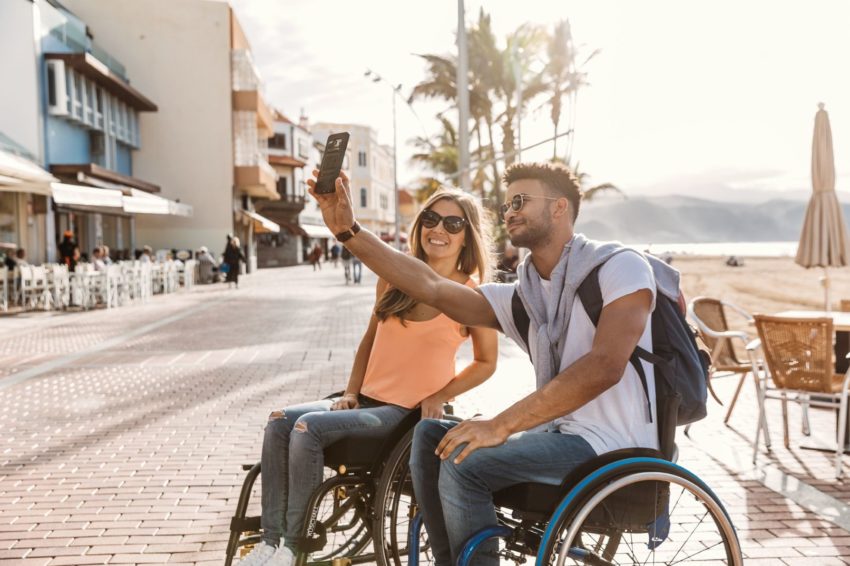Those of us with disabilities are often overlooked in the media. We are under represented on talent shows, in newspapers and even in politics, leading to a lack of awareness and understanding surrounding disability in society.
But disability in the media can be both positive and negative and lead to highs and lows for us disabled people – let’s see how and why in this article.
The Positives – Awareness and Education
When disability is realistically portrayed in the media, it can only be a positive thing. Many ordinary people living ordinary lives have never come across, or come into contact with someone who is disabled, so they naturally become fearful about doing or saying the wrong thing and often end up avoiding the situation or ignoring the disabled person in order to manage that fear. When TV shows, films and newspaper articles show disabled people and document their lives in an honest and educational way, it can often help to raise awareness and understanding in the people and communities who would otherwise be fearful of disabled people, therefore creating more accessible and inclusive societies and public spaces along the way, and ensuring that kindness and empathy are the way forward.
The Negatives – Perceptions of Superheroes and Benefits Scroungers
I was living in London during the time of the 2012 Olympic and Paralympic Games. I am a wheelchair user, and taxi and bus drivers would regularly ask me if I was a Paralympian and ask for my autograph. Whilst this was flattering and fun in many ways, it also got me thinking. Really, asking me if I was a Paralympian just because I’m disabled is as ridiculous as asking someone if they are a medal-winning sprinter just because they can run quickly. But the Paralympic Games was one of the first shows that represented disability in the mainstream media, and this is therefore where many people got their first understanding and awareness around disability. And whilst that increased disability representation in the media was brilliant, it also led to some skewed perceptions and negative media surrounding disability, too.
Suddenly, many non-disabled people thought that all disabled people were capable of becoming Paralympians (which, again, is as ridiculous as me assuming that every non-disabled person can run as quickly and be as successful as Mo Farah!) This opinion was fuelled by some pretty nasty newspaper articles that suggested that disabled people that weren’t ‘inspirational superhumans winning gold medals’ were instead lazy benefit scroungers, preferring to live off the state than reach their potential. Whilst disability representation in the media is brilliant, it needs to be the right representation. Disabled people are no more likely to become Paralympians than non-disabled people are to become Olympians. The two titles hold the same amount of effort, training, talent and grit. Just because a disabled person is working an office job, or is unable to work because of their condition, this does not make them a benefits scrounger. Our disabled community is entitled to normal, honest representation in the media that describes us as not superhuman, not lazy, but ordinary, everyday people who just want to get on with their lives. Because, for the most part, that’s just what we are!
Whilst disability representation in the media should not promote or encourage is sympathy, instead, it should evoke empathy, understanding, education and awareness. Representing a proportionate amount of disabled people in the media would lead to an authentic, honest and heartfelt portrayal, and the ability for disabled people to enjoy lives with less discrimination, inaccessibility and lack of opportunity in them. And that is a world we should all be working towards and hoping for.
